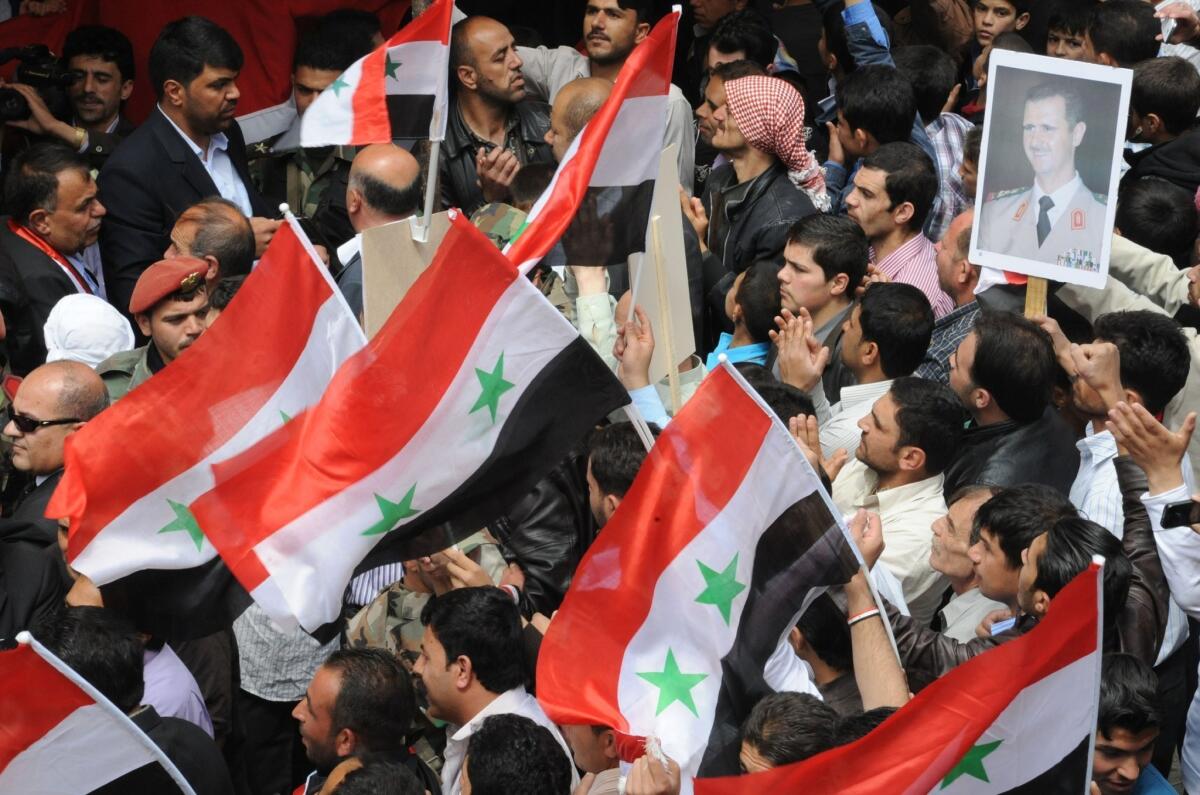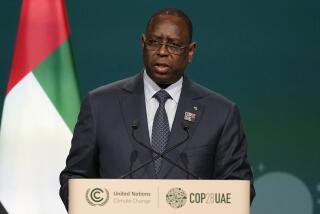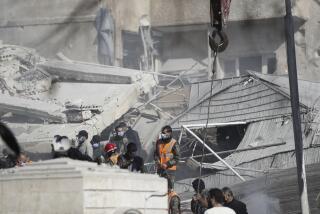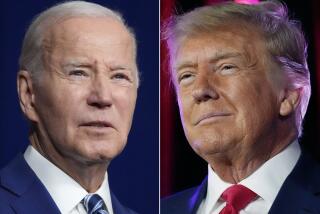Syria to hold presidential elections on June 3

DAMASCUS, Syria — Presidential elections will be held in Syria on June 3, the government announced Monday, even as a mortar barrage on the capital highlighted the relentless violence in the country.
President Bashar Assad is expected to run and handily win a third seven-year term, though new laws mean he could face a challenger for the first time. Assad has yet to officially declare his candidacy.
The United States and allies calling for Assad to step down denounced the planned balloting as “absurd” and a “parody of democracy,” in the words of a tweet from Edgar Vasquez, a State Department spokesman.
The British Foreign Office issued a statement saying the planned vote “will have no credibility” and “can only be designed to sustain [Assad’s] dictatorship.”
Opposition groups seeking to oust Assad are expected to boycott any such vote.
But the president maintains considerable support in the country, especially among minorities and secular Syrians. Many worry that Assad’s ouster could lead to even greater insecurity and sectarian strife. Government forces have made major battlefield gains in recent months, raising hopes of victory among some government supporters.
The planned election would appear to be a death knell for the already moribund Geneva peace process, the major diplomatic effort to end the more than three-year Syrian war. A central goal of the talks was the establishment of a transitional government as a prelude to democratic elections in Syria.
The chief United Nations mediator, Lakhdar Brahimi, has said that holding a vote under current circumstances in Syria would likely doom the peace process, which stalled after a pair of failed negotiating sessions in Geneva between representatives of the Syrian government and the U.S.-backed exiled opposition.
Monday’s announcement had been widely expected. Assad’s term ends in July, and Syrian authorities do not want a power vacuum in the midst of a war.
The government could have extended Assad’s term for two years with an emergency decree. But officials apparently concluded that holding an election that affirms Assad’s leadership would send a message of resolve to friends and foes in Syria and abroad.
In recent weeks, Syrian officials have organized a series of pro-Assad rallies in the capital, Damascus, and other government-controlled areas. Storefronts have been given fresh coats of paint in the national colors, and walls have been plastered with posters of Assad in various guises — martial and statesmanlike, decisive and contemplative.
The unveiling of the election timetable came the same day that mortar shells struck in various densely populated residential districts of the capital, killing at least four people and injuring 41, state media reported. One shell reportedly exploded less than 200 yards from the parliament building where the election date was announced. Rebels based in the outskirts of Damascus routinely fire mortars into city neighborhoods.
Prospective presidential candidates have from Tuesday until May 1 to declare their intention to run, said Jihad Laham, the parliamentary speaker.
Syria’s new constitution, approved in 2012, allows multiparty elections, although critics say the ruling Baath Party still dominates the process. Previous presidential elections during the Assad family’s more than 40-year tenure have yielded overwhelming victories for the president and his late father, Hafez Assad.
New election laws enacted this year require that candidates have lived in Syria for the past decade. That effectively blocks exile-based dissidents, such as officials of the U.S.-backed Syrian National Coalition, from running.
Carrying out an election in the war-ravaged nation will pose a huge logistical challenge. Officials gave no details on how balloting would be accomplished in contested zones or in the vast areas of the country that are no longer under Damascus’ control.
The government has maintained control of major urban areas, including the capital, and officials have expressed confidence that the vote can be held.
“The presidential elections will be carried out on schedule with no delay, heedless of what some are saying from abroad in a bid to undermine our self-confidence and break down our political and democratic track,” Laham said, according to state media.
Syrians living abroad will be able to vote on May 28 at Syrian embassies, authorities said.
More than 3 million Syrians are believed to have fled the country since the conflict broke out in 2011, most of them to neighboring nations that maintain diplomatic relations with Syria, including Lebanon, Iraq and Jordan. But Turkey, home to more than 700,000 Syrian refugees, has broken off diplomatic ties with its neighbor, meaning that Syrians living in that country have no embassy in which to cast ballots.
Twitter: @mcdneville
Special correspondent Lava Selo in Beirut contributed to this report.
More to Read
Start your day right
Sign up for Essential California for news, features and recommendations from the L.A. Times and beyond in your inbox six days a week.
You may occasionally receive promotional content from the Los Angeles Times.






